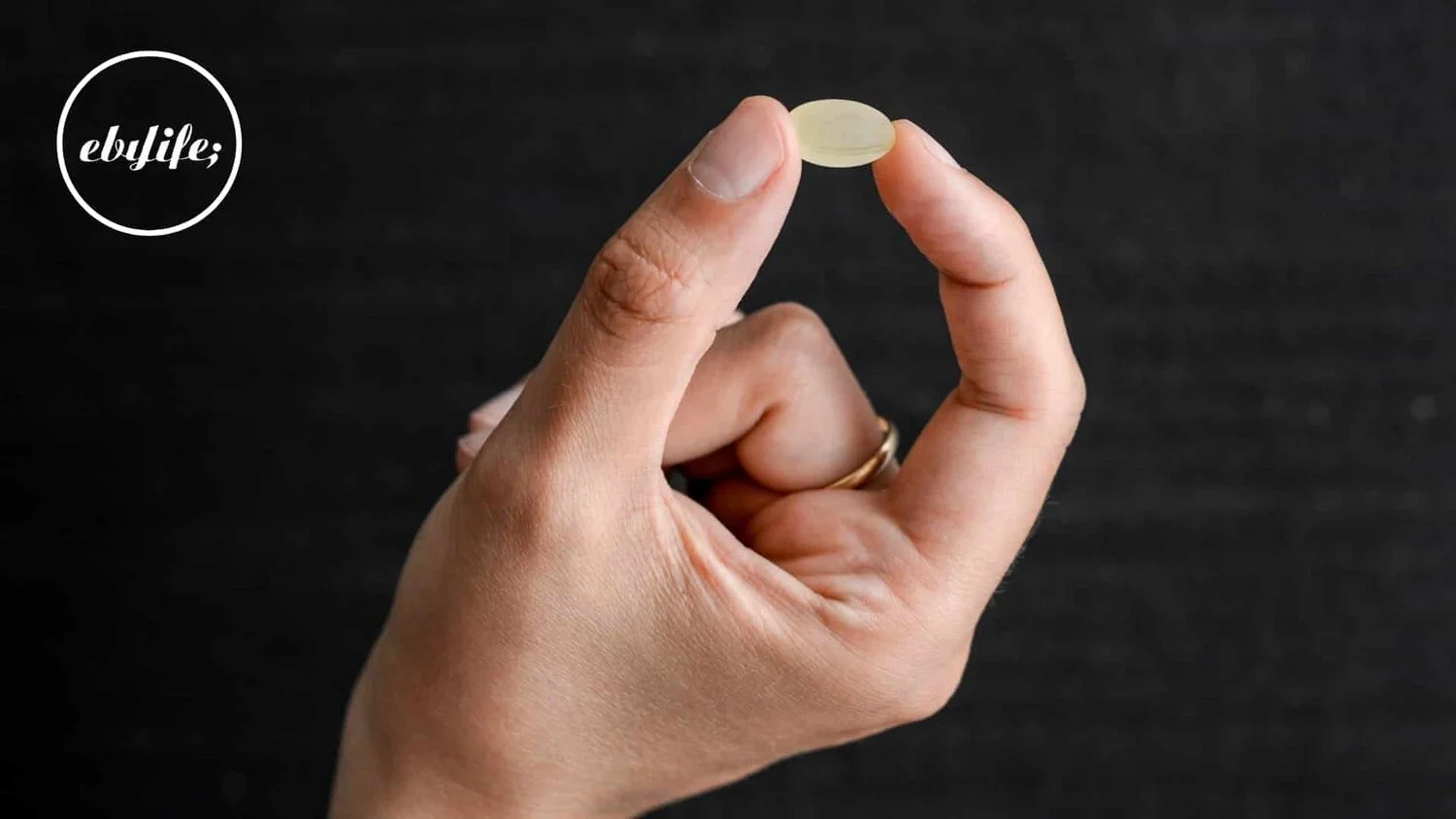9 Reasons Why Strength Athletes Need Omega-3s
By Martin Ebner, Head PT and sports nutrition specialist at Ebylife
When you think of "sports nutrition" what comes to mind? Is it Macronutrient split (the division of carbs, protein, and fats)? or is it the vast variety of Protein supplements, fat burners, and pre and post-workout concoctions? These sports performance-driven supplements quite often cast a shadow over the importance of micronutrients. In reality, these vitamins and minerals are needed for the body to function properly at its most basic level.
I am no stranger to protein powders and muscle-building supplements. In fact, I often recommend them and have been taking some form or another since my late teens. The way I see it, micronutrients are like the oil needed to turn the gears (the macros) and without them, well, you've got a lot of work on your hands. Essential fatty acids, omega-3s and omega-6s, are the finishing touches needed to help your body operate like a well-oiled machine, resulting in peak athletic performance. Here are 9 reasons why elite athletes and newbies alike should consider upping their omega-3 intake.
The ABCs of Omega-3s
Omega-3 fatty acids are not just for heart health. Omega-3 fatty acids are a type of polyunsaturated fatty acids (PUFA), meaning the body cannot make them on its own, yet they are needed to survive. Every single cell relies on omega-3s to function properly, especially the eyes and brain. Omega-3s are involved in immune function, digestion, fertility, and muscle building. Animal sources of omega-3 fatty acids include shellfish and cold-water fatty fish such as mackerel, salmon, and sardines. But they can also be found in vegan food sources such as olive oil, nut oil, walnuts, chia seeds, flaxseed, and algae.
Not all dietary sources of omega-3s are equally valuable. There are two main types of omega-3 fatty acids:
Long-chain omega-3 fatty acids: There are two types of long-chain omega-3s called EPA (eicosapentaenoic acid) and DHA (docosahexaenoic acid). Both EPA and DHA are important for proper neuronal, retinal, cardiovascular, and immune function. Some studies have also provided promising results that omega-3s may be beneficial in managing body weight and slowing cognitive decline. Traditionally, only fish and krill oil supplements contained both types of long-chain omega-3s, but now some high-quality algal oil supplements have both.
Short-chain omega-3 fatty acids: Short-chain omega-3s are ALA (alpha-linolenic acid) which can be found in plant sources such as flaxseed and walnuts. ALA can provide similar benefits to DHA and EPA, but it is much less potent. This is what has inhibited many vegans from getting a reliable source of omega-3s in their diets.
What are the health benefits of taking omega-3s?
Numerous studies have been done highlighting the many positive effects of omega-3 fatty acid supplementation:
Reduce Risk Factors for Heart Disease: One of the most well-known benefits of omega-3s is their ability to improve heart health. While eating plenty of fish can't eliminate the risk of heart attack or stroke altogether, they can reduce the risk factors of heart disease by lowering triglycerides, reducing blood pressure, raising "good" HDL cholesterol while reducing "bad" levels, preventing blood clots from forming, eliminating arterial plaque, and reducing the body's inflammatory response to decrease the stress placed on the heart.
Sharpen Eye Health: DHAs are a component of the retina. As time goes on, a lack of DHA levels can drop causing issues with vision. DHA supplementation is commonly recommended to protect eye health and even prevent macular degeneration.
Improve Immune Function: Omega-3 supplementation is commonly used to strengthen the immune system and help manage autoimmune disorders such as lupus, rheumatoid arthritis, ulcerative colitis, Crohn’s disease, and psoriasis.
Improve Mental Health and Prevent Cognitive Decline: Omega-3s are also wildly influential in the brain's functioning. Low levels of omega-3s have been linked to anxiety, depression, schizophrenia, and bipolar disorder. It may also help to slow cognitive decline and prevent diseases like Alzheimer's.
Why are omega-3 fatty acids important for athletes?
As an athlete, you are probably less concerned about weight loss and heart health than the average individual. So, why should you care about getting enough omega-3s, and how much is really enough? On top of the benefits listed above, omega-3s may also provide an edge to athletic performance in the following ways:
Reduce muscle soreness and speed up recovery times: Every athlete is very familiar with delayed onset muscle soreness, or DOMS. This is the post-exercise soreness that sets in after exercising a new muscle group or going a little bit too hard on the weights. While pain is a sign of gain, it can reduce mobility and flexibility, interfering with your workout or performance. In order to test the effect of omega-3 fatty acids on inflammation and DOMS, a study was conducted in which high doses of omega-3s were given to healthy adult men and women before doing eccentric biceps curls, while another group performed the same exercises after a 14-day omega-3 restriction. Inflammation and soreness were checked in both groups before and 48 hours after each session. The results showed that omega-3 supplementation decreases soreness after physical activity and could be beneficial to bodybuilders, athletes, and physical therapy patients alike.
Improve muscle strength and power: A similar study was also done among rugby players to measure their relative rates of muscle fatigue and soreness against a placebo. This time, fish oil supplementation was added along with a protein supplement. This study also came to a similar result, and I quote: "adding fish oil to a protein-based supplement on muscle soreness translated into the better maintenance of explosive power in elite Rugby Union players during pre-season training." A systematic review on both professional and amateur athletes from cyclists to soccer players also saw similar results.
Strengthen bones and joints: It's not just muscle tissue that benefits from omega-3 supplementation. Omega-3s have also been shown to decrease joint inflammation and increase the body's absorption of calcium from the gut, thus improving bone strength and enhancing the synthesis of bone collagen.
Increase muscle mass: Studies show that omega-3 fatty acids can stimulate muscle protein synthesis in young, middle-aged, and older adults. This is helpful to older adults who are at risk of muscle sarcopenia, but it also benefits athletes looking to up their muscle mass and strength.
May increase endurance: Though more human studies are needed, preliminary human studies and animal studies suggest that omega-3 supplementation may increase endurance. Given the other proven "wins" of omega-3 supplementation, I'd say this is a gamble worth taking.
My two cents - is it worth it?
Omega-3s are not a trend. What started as a few studies looking into omega-3s for heart health has now exploded into extensive research on omega-3s for everything from skincare to sports performance. Given the many overall health benefits, omega-3s have regardless of sports performance, I'd say that it makes supplementation well worth it. In decades of people consuming fish oil supplements, the only complaint that I've heard is "fish burps". Now, algal-oil-based omega-3 supplements can provide all the benefits of fish oil without the bad breath or ecological footprint. My go-to is Amandean's Vegan Omega-3 Capsules. As with all Amandean supplements, sustainability and purity is the bottom line. This supplement is sustainably sourced & eco-friendly from pure, non-GMO marine algae grown in the USA. Plus, as the above study illustrated, they can be a beneficial addition to your diet if you are already taking a protein supplement. Now that a lack of scientific research and dietary restrictions have been removed from the equation, what have you got to lose?
GET 10% OFF AMANDEAN OMEGA 3 WITH CODE: EBYLIFE10
More articles you might enjoy:
References:

